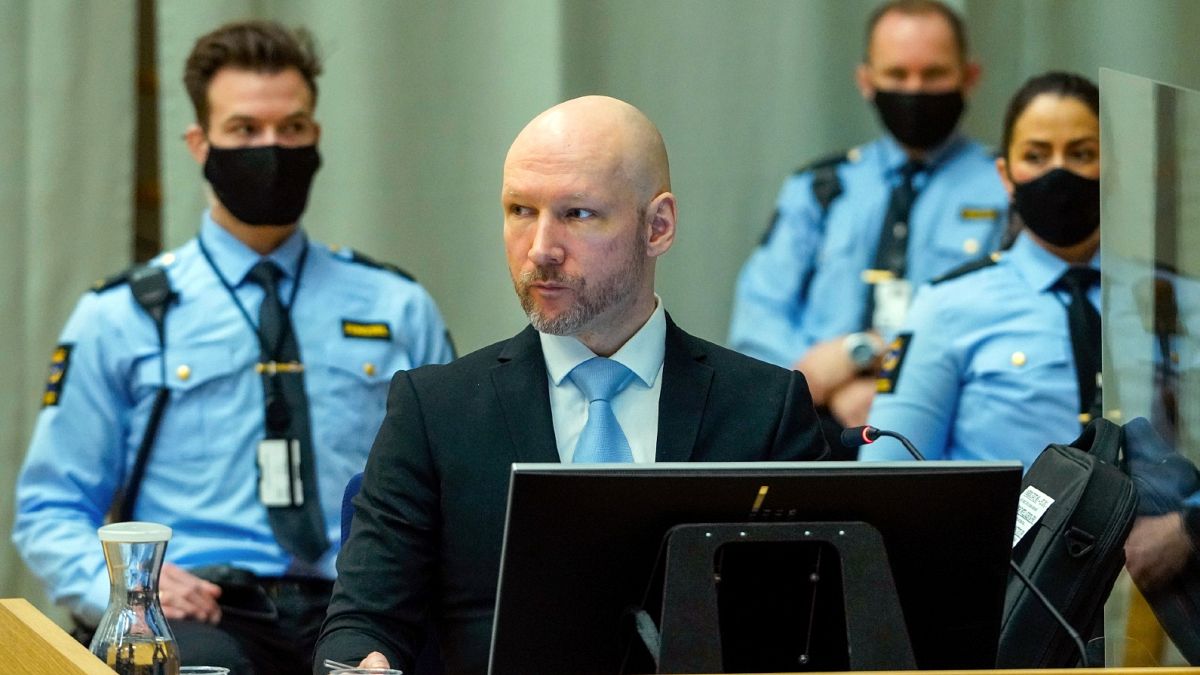"There is a clear risk that (Breivik) will return to the behaviour that led to the July 22 terrorist attacks," the Telemark District Court ruled, rejecting the request for release.
The Norwegian judiciary on Tuesday rejected a request by neo-Nazi Anders Behring Breivik for parole just 10 years after he killed 77 people in the Nordic country.
"There is a clear risk that (Breivik) will return to the behaviour that led to the July 22 terrorist attacks," the Telemark District Court ruled, rejecting the request for release.
As Breivik has never shown remorse after perpetrating the bloodiest crime ever committed in Norway in peacetime, this court decision was widely expected.
On 22 July 2011, he first detonated a bomb near the government headquarters in Oslo, killing eight people, and then killed 69 others, mostly teenagers, by opening fire on a Labour Youth summer camp on the island of Utøya.
The 42-year-old right-wing extremist was sentenced in 2012 to 21 years in prison, the maximum sentence that can be extended for as long as he remains a threat to society.
The verdict had a minimum period of ten years, after which he could apply for parole.
He sought parole at a hearing held from the 18th to 20th of January, for security reasons, in the gymnasium of Skien prison (south), where he is incarcerated
During the hearing, prosecutor Hulda Karlsdottir argued Breivik still is “a very dangerous man” and “has not shown any genuine remorse in court.”
A psychiatrist who has observed him since 2012, testified that Breivik can’t be trusted and her assessments carried out in 2013, 2017 and 2021 were still valid.
She wrote in her last assessment, released on 17 February 2021: "I believe that Breivik's statistical risk of violence in the event of a parole is now high. His background counts a lot, but his lack of insight into his own situation and total unrealistic thoughts about life as a parolee are absolutely essential in this assessment.".
A prison official also told the hearing that “there is an imminent danger” that, if released, Breivik would again commit serious crimes.
Breivik, meanwhile, told the hearing that he had been "brainwashed" into committing the terrorist acts, that he acted as a soldier and that responsibility for the attacks lies with those who gave the order. He argued that this is why he feels no guilt.
He added that his ideological position remains unchanged from 2011 but that he would now aim to spread his views "by peaceful means" and claimed that an agreement between him and the country's political leadership would help resolve what he described as an ongoing culture war. He also said that he had comprehensive business plans to turn his name into a "brand name".
The ruling stated however that he "showed no visible remorse" and that his claim to be following orders did not hold up.
"Who gave the order and how the order was given is so diffuse that it is not possible to believe that the accused himself believes in this," the ruling states.
He also reiterated his belief that the people he killed on the island of Utoya were in a "leadership position" — despite most of the victims being children — and that a genocide based on race is currently ongoing.
"He still wants radical changes of society and he wants to work actively for his views. He appeared confused with thoughts of greatness about himself and his own position in society. Both as a kind of negotiator and broker with heads of state and as one who has large crowds of sympathisers. He also presented a comprehensive business model with himself at the centre, a model that seems to miss any kind of realism," the ruling said.
Breivik's lawyer Øystein Storrvik said his client should be released to prove that he is reformed and no longer a threat to society, and that is not possible to prove while he is in total isolation.
Storrvik called it “a paradox that a person is treated so badly in prison that he never gets better. He never gets out.”
